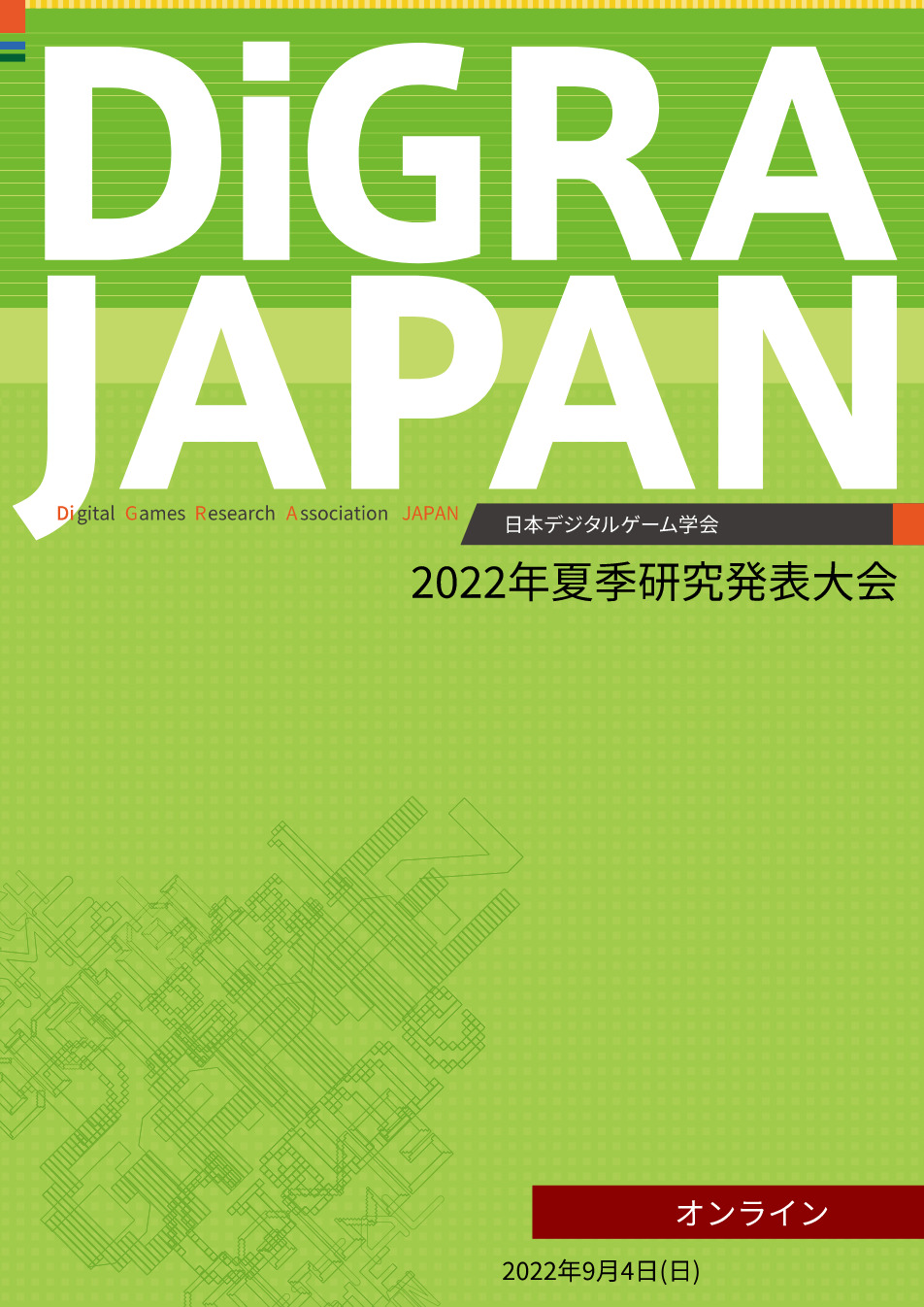2022 Summer Conference
Displaying 1-25 of 25 articles from this issue
- |<
- <
- 1
- >
- >|
Front matter
-
Pages 1-
Published: 2022
Released on J-STAGE: February 24, 2023
Download PDF (71K) -
Pages 2-
Published: 2022
Released on J-STAGE: February 24, 2023
Download PDF (787K) -
Pages 3-
Published: 2022
Released on J-STAGE: February 24, 2023
Download PDF (887K) -
Pages 4-5
Published: 2022
Released on J-STAGE: February 24, 2023
Download PDF (937K)
Human interface (session 1)
-
Article type: Conference Paper
Session ID: 1-1
Published: 2022
Released on J-STAGE: February 24, 2023
Download PDF (6862K) -
Article type: Conference Paper
Session ID: 1-2
Published: 2022
Released on J-STAGE: February 24, 2023
Download PDF (1255K)
Education and motivation (session 2)
-
Article type: Conference Paper
Session ID: 2-1
Published: 2022
Released on J-STAGE: February 24, 2023
Download PDF (1273K) -
Article type: Conference Paper
Session ID: 2-2
Published: 2022
Released on J-STAGE: February 24, 2023
Download PDF (1381K) -
Article type: Conference Paper
Session ID: 2-3
Published: 2022
Released on J-STAGE: February 24, 2023
Download PDF (1551K)
Human orientation technology (session 3)
-
Article type: Conference Paper
Session ID: 3-2
Published: 2022
Released on J-STAGE: February 24, 2023
Download PDF (1362K) -
Article type: Conference Paper
Session ID: 3-3
Published: 2022
Released on J-STAGE: February 24, 2023
Download PDF (5169K)
AI (session 4)
-
Article type: Conference Paper
Session ID: 4-1
Published: 2022
Released on J-STAGE: February 24, 2023
Download PDF (1241K) -
Article type: Conference Paper
Session ID: 4-2
Published: 2022
Released on J-STAGE: February 24, 2023
Download PDF (1135K) -
Article type: Conference Paper
Session ID: 4-3
Published: 2022
Released on J-STAGE: February 24, 2023
Download PDF (1380K)
History, literature and psychology (session 5)
-
Article type: Conference Paper
Session ID: 5-2
Published: 2022
Released on J-STAGE: February 24, 2023
Download PDF (1113K) -
Article type: Conference Paper
Session ID: 5-3
Published: 2022
Released on J-STAGE: February 24, 2023
Download PDF (1392K)
Panel session
Panel session 1
-
Article type: Conference Paper
Session ID: Pl-1
Published: 2022
Released on J-STAGE: February 24, 2023
Download PDF (1086K)
Panel session 2
-
Article type: Conference Paper
Session ID: Pl-2
Published: 2022
Released on J-STAGE: February 24, 2023
Download PDF (1001K) -
Article type: Conference Paper
Session ID: Pl-2
Published: 2022
Released on J-STAGE: February 24, 2023
Download PDF (1701K)
Interactive session
-
Article type: Conference Paper
Session ID: In-1
Published: 2022
Released on J-STAGE: February 24, 2023
Download PDF (1380K) -
Article type: Conference Paper
Session ID: In-2
Published: 2022
Released on J-STAGE: February 24, 2023
Download PDF (4751K) -
Article type: Conference Paper
Session ID: In-3
Published: 2022
Released on J-STAGE: February 24, 2023
Download PDF (1188K) -
Article type: Conference Paper
Session ID: In-4
Published: 2022
Released on J-STAGE: February 24, 2023
Download PDF (1105K)
Back matter
-
Pages 85-
Published: 2022
Released on J-STAGE: February 24, 2023
Download PDF (47K) -
Pages 86-
Published: 2022
Released on J-STAGE: February 24, 2023
Download PDF (142K)
- |<
- <
- 1
- >
- >|
